El Nino or climate change: What's causing the world's extreme weather?
- Published
- comments
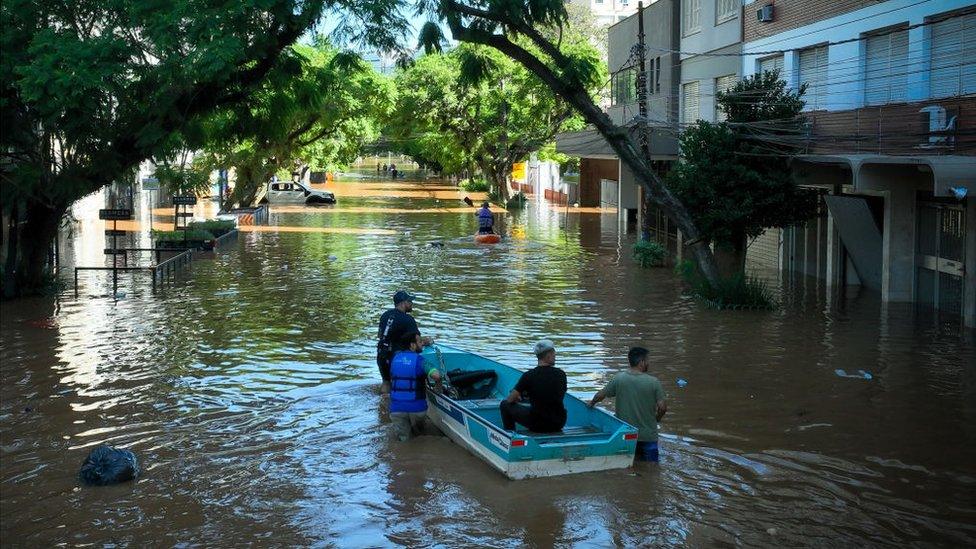
Floods have hit parts of Brazil after heavy rain
Many countries around the world have experienced extreme weather events recently.
Hundreds of tornadoes have caused damage in the US, a heatwave is sweeping across south-east Asia and floods are impacting people in Brazil and Kenya.
BBC Weather's Ben Rich told Newsround climate change may be making these weather events worse.
Some are also linked to El Nino, a natural event that can cause stormy weather.
Heatwave in Southeast Asia
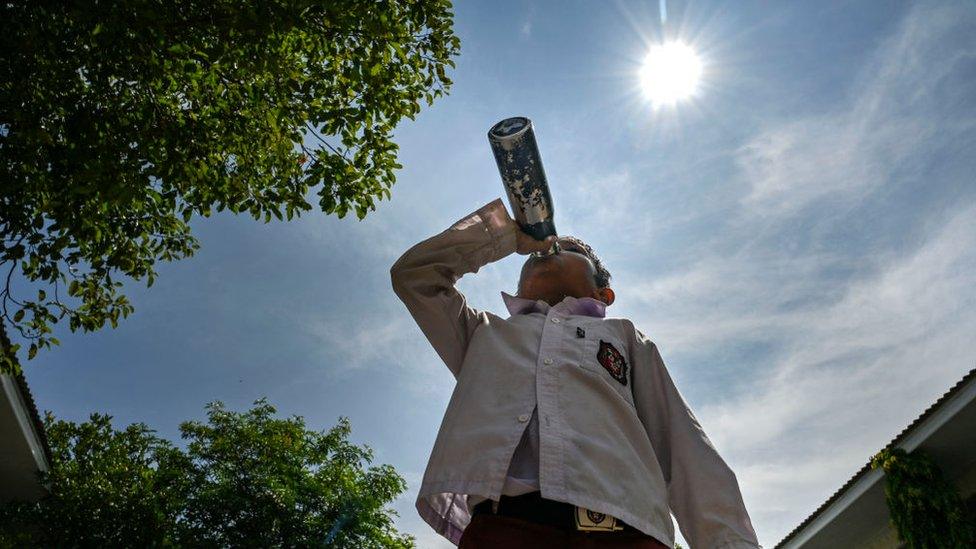
Some schools have relaxed their uniform policies so children can feel more comfortable in hot, stuffy classrooms
Millions of children have missed lessons recently after record-breaking temperatures hit parts of south and southeast Asia including the Philippines, India, Bangladesh and Cambodia.
Pupils in the Philippines, one of the worst affected places, were told to stay at home and do online classes for two days because temperatures were due to hit 37 degrees or more.
Experts say weather events like this could widen the learning gaps between cooler and hotter countries, because extreme heat could result in schools having to shut on hot days and children missing out on education.
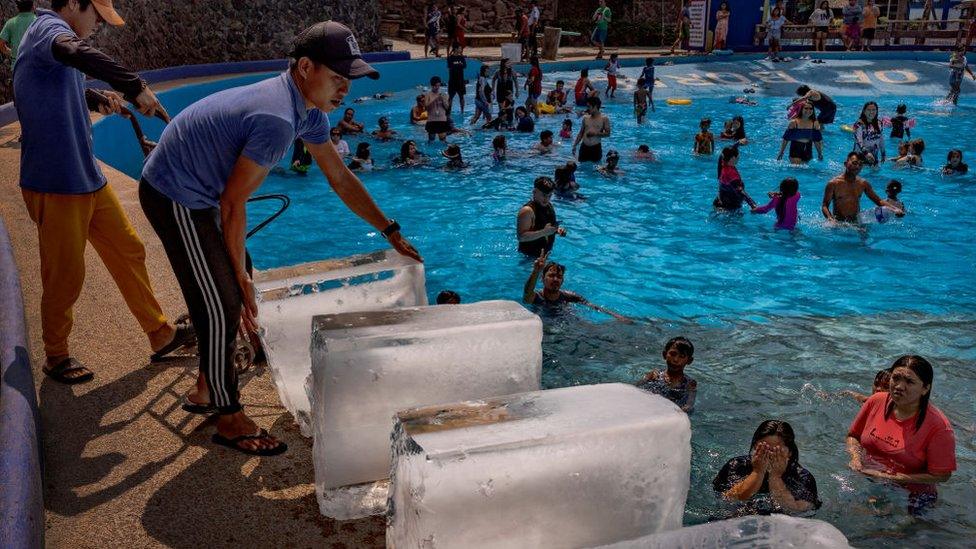
People have resorted to putting blocks of ice in swimming pools to cool down
What is El Nino and is it causing extreme weather?
BBC Weather presenter Ben Rich told us El Nino may be having an impact on the severity of these heatwaves.
El Nino is a natural climate phenomenon that happens when water in the Eastern Pacific Ocean heats up more than normal. It creates unusually hot and stormy weather, by releasing additional heat into the atmosphere.
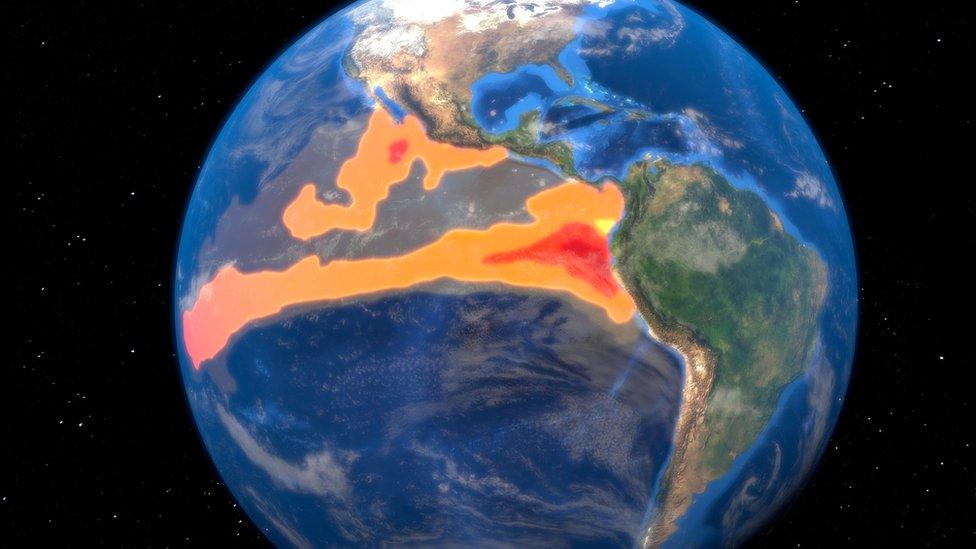
El Nino is a natural warming of the Pacific Ocean that happens roughly every five years - it affects weather systems across the world, bringing extreme weather such as floods and droughts
El Nino is declared when the water warms up by half a degree Celsius higher than the long term average.
"It's a really complex thing and it can have various impacts on the weather around the world… including a greater risk of flooding in southern Brazil and a greater risk of dry, hot weather in South East Asia," says Ben.
"However it's important to note this doesn't mean these things will happen - it just means they might be made more likely.
"El Nino may play a part in many of them [extreme weather events] and climate change may be making them worse, certainly in the case of the floods and the heatwaves."
Flooding in Brazil
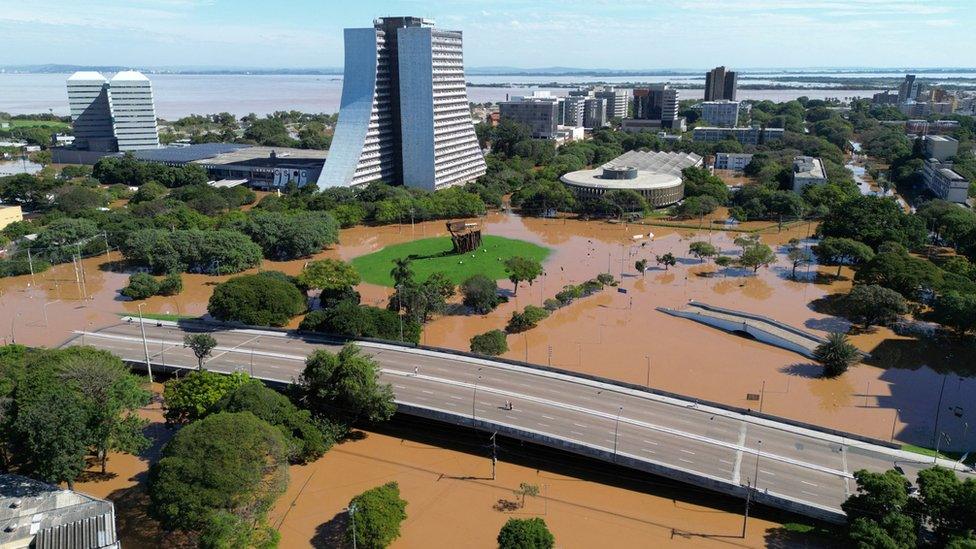
The flooded streets at the centre of Porto Alegre, Rio Grande do Sul, Brazil
In Brazil, tens of thousands of people have been forced out of their homes by floodwater.
Heavy rain isn't unusual for this time of year in Brazil, but this has been worse than usual.
Millions are also facing power cuts while four fifths of the population in Porto Alegre are without running water.
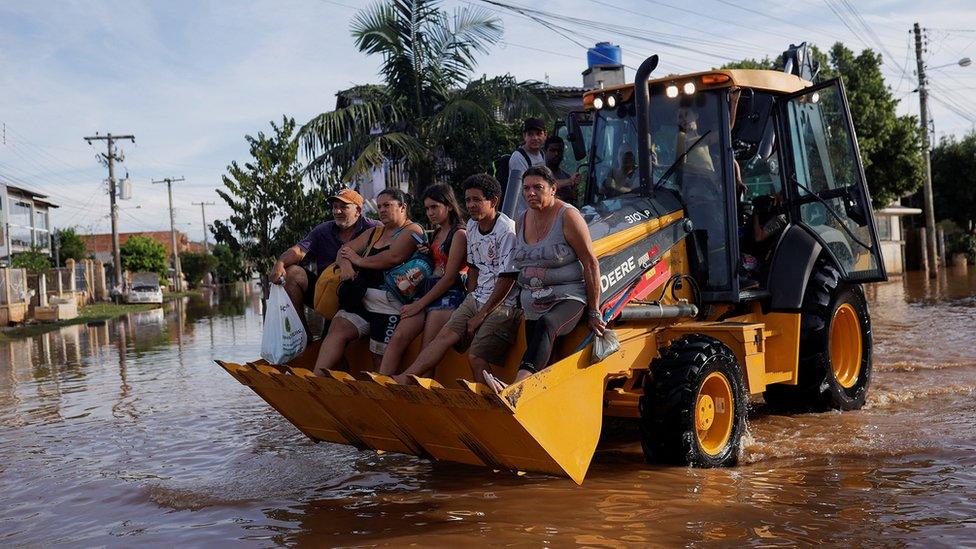
Thousands of homes have been destroyed and people are being evacuated
The mayor of Eldorado do Sul, one of the affected cities, told local media that the city was "100% destroyed".
Rain has stopped for now, but many will be feeling the effects of the floods for weeks to come.
Tornadoes in the US
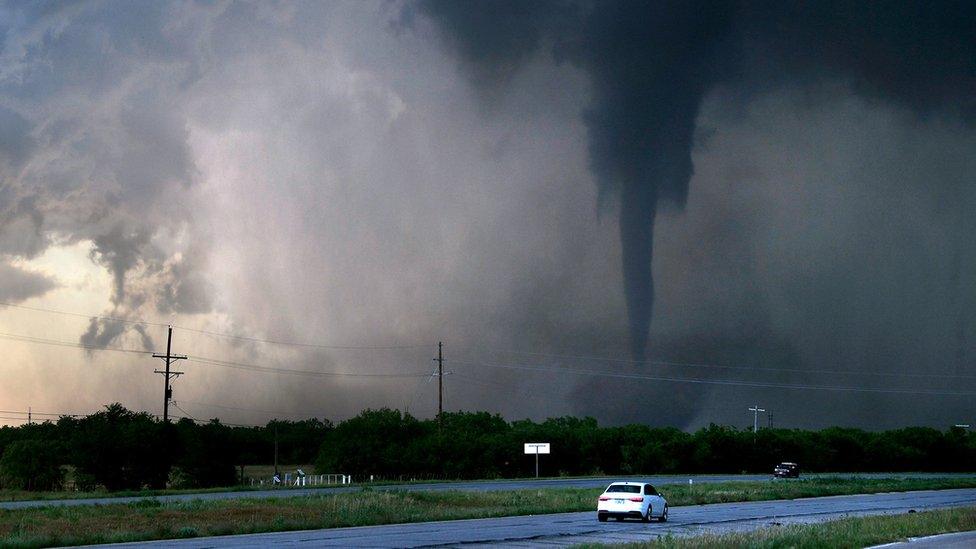
People in parts of the US are used to tornado season, but this year is particularly bad
This time of year it's common for tornadoes to form in parts of the United States, people living in certain areas are prepared for them and have early warning systems in place so that they can move to safety.
However, this year has been particularly severe, US weather authorities have reported more than 100 tornadoes touching down in central and southern states.
Tornadoes are rotating columns of air which touch the ground, they can cause huge devastation.
What is a tornado?
Is climate change making weather worse?
Scientists internationally agree that climate change from burning coal, oil and gas is seeing a rise in global temperatures and causing more extreme weather including storms.
But it can be harder to say whether specific events, such as a single storm, or tornado, are caused just by climate change.
To find out the answer, scientists look at years of information about weather in a place to identify trends. They also use computer models to compare a world without global warming to the world we live in now.
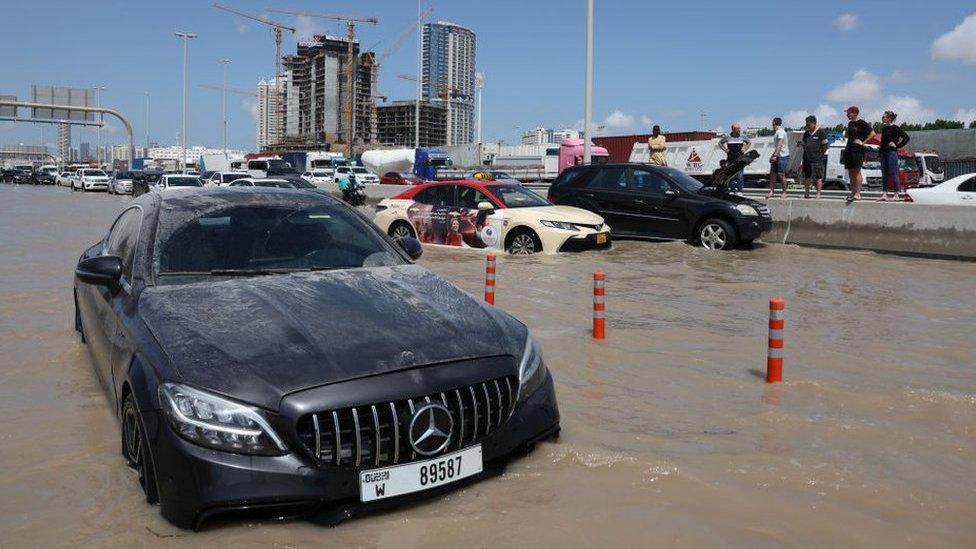
Dubai experienced unusual floods last month
Professor Friederike Otto from Imperial College London, who studied recent flooding in Dubai, says global warming and a hotter atmosphere will create more powerful storms and rainfall.
"We are quite confident about the link to climate change."
Watch: Eight-year-old Iris shares her experience of Dubai's flood, including hail the size of tennis balls
Global temperature rises and what's being done to help
Climate change is being blamed for a warming of the world's oceans, which have broken temperature records every day for the past year.
Figures from the European Union's climate service Copernicus show last month was globally warmer than any previous April, in records dating back to 1940.
"The Atlantic has been warmer than usual, and this is not a pattern you normally associate with El Niño - so it's something somehow different," said Carlo Buontempo, director of Copernicus.
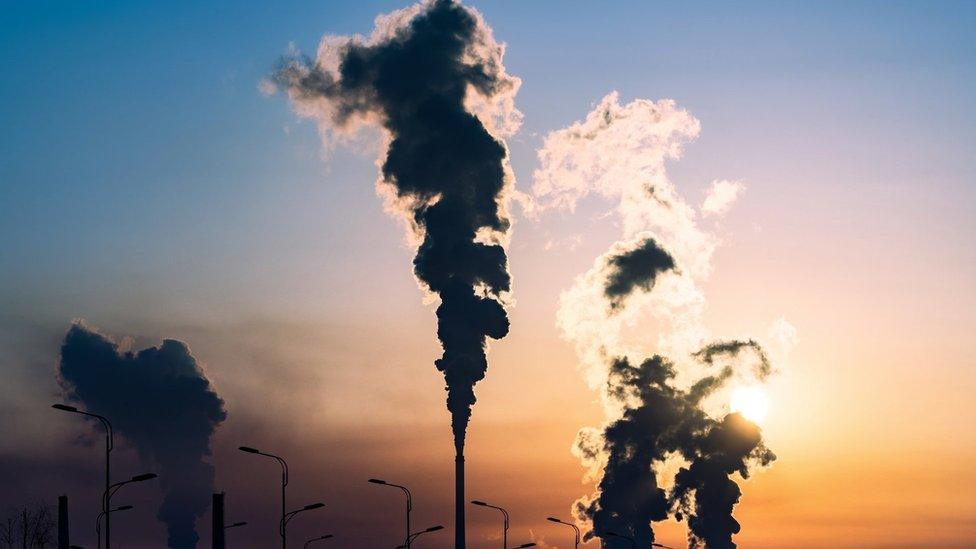
Copernicus also confirmed that last month was the warmest April on record in terms of global air temperatures. It follows a sequence of temperature records being broken for the 11th month in a row.
At COP28 in Dubai last December, world nations agreed to a deal to reduce the use of planet-warming fossil fuels.
And new data from climate group Ember, suggests there has been a global shift, with renewable power generating 30% of the world's electricity for the first time, last year.
- Published16 April 2024

- Published30 April 2024
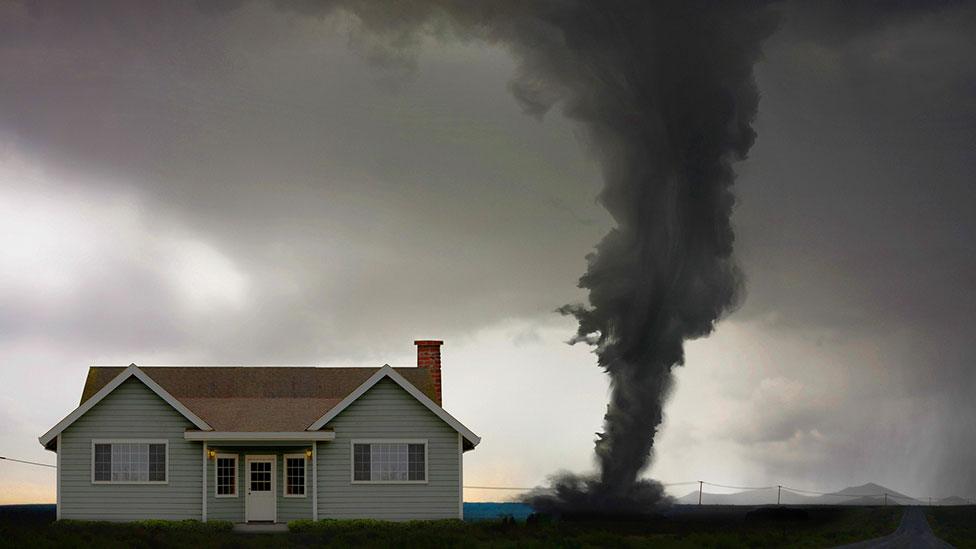
- Published7 May 2024
